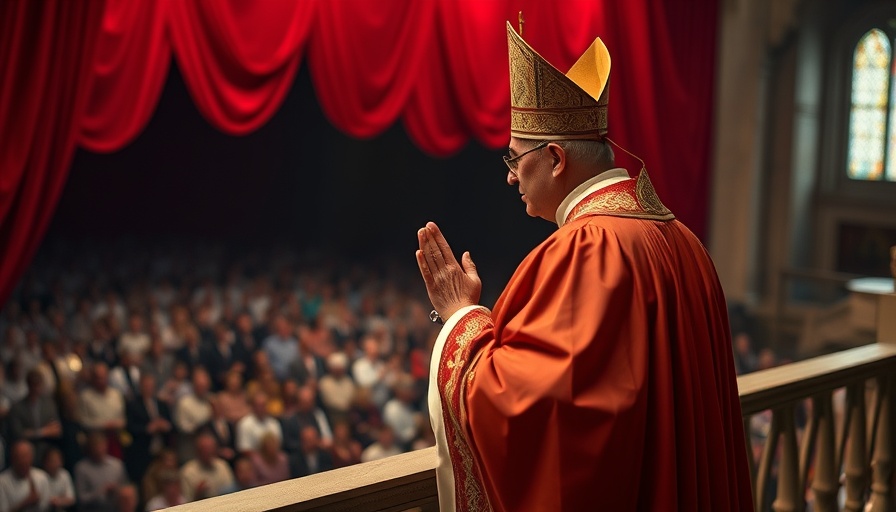
Understanding the Significance of Pope Leo XIV
In an unexpected twist of history, the recent elevation of Robert Cardinal Prevost to Pope Leo XIV represents a historic moment for both the Catholic Church and American society. This first American pope is celebrated not just for his spiritual leadership but for the cultural implications of his papacy. As a figure who embodies a blend of traditional Catholic values and progressive ideals, Leo XIV may reshape how the Church interacts with a diversifying world.
A Brave New Apostolic Era
The election of an American pope has stirred conversation around what this means for the Church’s international stance and its traditionally Eurocentric roots. As America grapples with its identity in a global landscape, Pope Leo XIV's leadership might align with an era characterized by inclusivity and engagement, contrasting sharply with the fears articulated by Lewis Charles Levin in the 19th century. The specter of American influence looms large—can this pope unite Catholics globally while remaining true to the complexities of American culture?
Historical Context: The American Papacy
Historically, American political figures have wrestled with the implications of Catholicism within the nation. From anti-Catholic sentiments during the 1800s to the anxieties showcased by Levin, the past offers a rich tapestry of fear and fascination toward the papacy. The notion of an American pope challenges the narrative that has long placed European leaders at the forefront of the Catholic faith.
Parallel Example: Global Leaders and Their Backgrounds
Just as Leo XIV is creating waves within religious circles, political leaders like Justin Trudeau and Emmanuel Macron have also captured global attention. Their diverse backgrounds reflect the broader trend whereby national leaders serve as cultural symbols, tasked with representing their countries’ values and aspirations on the world stage. Leo XIV's American roots could echo this trend, drawing parallels on governance, heritage, and responsibility.
Cultural Relevance: Leo XIV in Pop Culture
Interestingly, the election of an American pope invites parallels with contemporary culture, notably the intersections with American sports. Many might draw amusing images of Pope Leo XIV reflecting fondly on the '85 Bears, blending reverence with a touch of nostalgia. This connection showcases the ability of influential figures to bridge the gap between solemnity and relatable facets of everyday life, enriching the Church's connection with followers.
Looking Forward: The Future of Catholicism
As we look to the future, the election of Pope Leo XIV brings anticipation about potential reforms in the Catholic Church. With a background that deeply intertwines with American values, it would be compelling to see how he approaches contemporary issues like environmentalism, social justice, and inclusivity. Such initiatives could create a ripple effect not only within the Church but across religious institutions globally.
Conclusion
The emergence of Pope Leo XIV marks a significant moment in history—one that transcends religious borders and beckons a reevaluation of how faith interacts with society today. His appointment is not just a leadership change but a cultural shift that reinforces the principle of adaptation within the Church. As the world watches, one can only hope that this new papacy champions the values of unity, love, and progress.
For those wishing to understand the evolving dynamics of faith in our rapidly changing world, following the journey of Pope Leo XIV is more than just an exercise in observation—it's an invitation to engage in meaningful dialogue about what it means to be both Catholic and American today.
 Add Row
Add Row  Add
Add 




Write A Comment